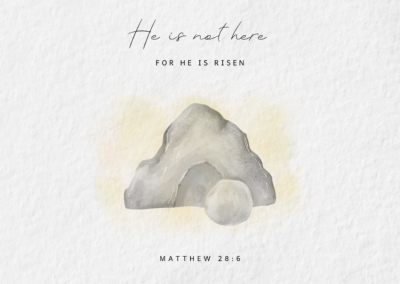By Graeme, Finlay
In appreciation of Sir John Houghton FRS who died on the 15th April 2020, a victim of COVID-19.

[responsivevoice_button voice=”US English Female”]
The authors of a major study have concluded that ‘Human actions are causing the fabric of life to unravel’; the ability of nature to sustain human well-being is declining. The authors cite (among other things) erosion of pollination services, of air and soil quality, of climate regulation and of psychological well-being. They warn that ‘the challenges posed by biodiversity loss, climate change, and achieving a good quality of life for all are deeply interconnected and need to be addressed in an integrative manner – and urgently’.1
These warnings are not new. I was first informed of the CO2-climate change link as a graduate student, in the departmental coffee room, over forty years ago. The predictions of how global mean surface temperatures would change, made in the 1970s, have been found to be accurate when compared with current reality. The correspondence of prediction with later observation indicates that the 1970s’ models were essentially correct.2
The science of anthropogenic climate change is well understood, but responses have been inadequate at best; downright selfish and duplicitous at worst. It is easy for people to be paralysed by the size of the problem. The contribution of each individual to climate change is an infinitesimal fraction of the whole. Why change my lifestyle when my impact contributes 10–10(or whatever) of total CO2 emissions? We wait for someone else to solve climate change – the Americans, the Chinese, the government, the rich, the boomers … and all the time, the crisis deepens.
It is instructive to keep tabs regularly on the seemingly inexorable – and accelerating – rise in atmospheric CO2 concentrations,3of mean global temperatures,4and of mean global sea levels, currently rising at 3.6 mm per year.5 The reality of CO2 accumulation is evidenced by the steady acidification of the seas.6The consequences for shellfish viability will be catastrophic: The chemistry is simple: H2CO3+ CaCO3® 2HCO3–+ Ca2+. In other words, carbonic acid (effectively, aqueous CO2) dissolves shells, releasing baking soda and calcium ions. Say goodbye to your gourmet mussels and toheroa.
Responses to date amount to mere tokenism. In New Zealand, we shut down oil exploration off the Taranaki coast, but without reducing our energy consumption. As a result, we will need to import the equivalent amount of energy from elsewhere, increasing our carbon emissions.
The issue is a moral one. To me, as a Christian in science, the beacon of hope is the gospel of Jesus. I want to argue that all Christians should be working to mitigate and reverse the effects of climate change, and to care for and protect the earth. The gospel encourages values and perspectives that are a judgment on consumerism and individualism both inside and outside the Church. So, why should Christians in particular care about the earth?
First, this is God’s world- it is not ours to pillage. We are morally accountable to the Creator of the universe, individually and corporately responsible for the way we (mis)appropriate the earth’s resources – often at the expense of others. Each person’s impact on the biosphere might be infinitesimally small, but he or she is accountable for his or her lifestyle choices. Here is an imperative that necessarily transcends self-interest (enlightened or otherwise), mere pragmatism or a sentimental appreciation of nature. The care of creation is a matter of acting justly – because that matters to God, as has long been acknowledged in the Māori understanding of kaitiaki, or guardianship.
Second, stories create our values and moral visions. Before anything else, the ancient Hebrew prophets emphasised the links between justice, creation care and ecological health. Theologian Michael Northcott has said that Jeremiah was the first ecological prophet in history. He linked obedience to God with ecological well-being – insisting that the land was to be seen as a gift of God, not a commodity to be exploited and exhausted.8
Third, the story of Jesus. In 1967, the historian Lynn White Jr. blamed Christianity for the environmental crisis.9This provoked over 50 years of Christian self-reflection on our use of and relationship to nature. He was partly right. Christians did use the concept of dominion to excuse a utilitarian engagement with the planet. But White himself extolled the gospel of Jesus, writing of the ‘… transcendent Creator who, in the ultimate gesture of cosmic humility, assumed flesh, lay helpless in a manger, and hung dying on a scaffold’. White referred approvingly to the central gospel claims that, in Jesus, God became part of the physical and biological world (‘assumed flesh’). He lived as a vulnerable human being, subject to hardship and oppression (‘lay helpless in a manger’), and he died on a Roman gibbet to liberate other people- including those who unjustly killed him (‘hung dying on a scaffold’). The ‘ultimate gesture of cosmic humility’ provides an unequalled paradigm that challenges our preoccupation with self-gratification. We need to heed White’s challenge and rediscover the meaning of Jesus’ life of self-giving service.
Fourth, the issue of sin, or moral failure. Although sin is not a popular theological term, we will never adequately represent human abuse of creation without it- even though some scientists would go so far as to say that our acquisitive, exploitative lifestyles reflect a phylogenetic maladaptation. An equally unfashionable word is idolatry– appropriate for a society that has fallen under the control of forces and energies from which it cannot escape, like the love of wealth and hedonistic pleasure.10CS Lewis, at the time of WWII, wrote words that are equally relevant to our current crisis: ‘only the degree of virtue which we now consider as impracticable can possibly save our race from disaster’.11
Fifth, the biblical concept of repentance– a humble repudiation of evil, perpetrated against God and God’s creation as runaway consumption. The Greek word for repentance is metanoia, now transliterated into English. It denotes a complete 180°about-face. A deep sense of repentance, before God and our fellow humans, is necessary if we are to reverse our headlong rush to ecological disaster.15Repentance includes a commitment to vastly reduce our appropriation of earth’s diminishing resources.
At last, a recurring motif of the biblical story is that God brings wonderful new realities out of chaos and disaster. The biblical writers recognised that this current creation is important and will be transformed into a new creation.16The resurrection of Jesus is the promise of that new creation.17It is the basis of our glad confidence for the future. The Bible calls this confidence hope. This hope provides the cosmic imperative of our whole-hearted joyful collaboration with God.
A few years ago, Sir John Houghton, at the time Co-Chair of the Intergovernmental Panel on Climate Change, addressed an audience in the Auckland Regional Council lecture theatre. He expressed his confidence that ‘God will not abandon his creation’.18 These words have been an encouragement to me ever since.
References
1. Diaz S, Settele J, Brondizio ES et al(2019). Pervasive human-derived decline of life on Earth points to the need for transformative change. Science366, 1327
2. Cornwall W (2019). Even 50-year-old climate models correctly predicted global warming. December 4. https://www.sciencemag.org/news/2019/12/even-50-year-old-climate-models-correctly-predicted-global-warming; Kay JE (2020). Early models successfully predicted global warming. Nature578, 45
3.https://www.esrl.noaa.gov/gmd/webdata/ccgg/trends/co2_data_mlo.png
4. https://public.wmo.int/en/media/press-release/wmo-confirms-2019-second-hottest-year-record
5. https://www.climate.gov/news-features/understanding-climate/climate-change-global-sea-level
6. https://www.pmel.noaa.gov/co2/file/Hawaii+Carbon+Dioxide+Time-Series
7. See for example https://www.thegreenage.co.uk/tech/environmental-footprint-electric-cars/; https://www.stuff.co.nz/environment/climate-news/116599831/climate-explained-the-carbon-footprint-of-electric-versus-fossil-cars;https://www.telegraph.co.uk/technology/2020/02/24/electric-transport-revolution-isnt-green-think/
8. in Ashby R, Mulherin C, Pilbrow J and Ames S, editors, A Reckless God? Currents and Challenges in the Christian Conversation with Science(Reservoir Victoria: Morning Star Publishing, 2018), 136-137; Northcott MS, A Moral Climate: The Ethics of Global Warming(Marynoll NY: Orbis Books, 2007), 4-5, 10-15, 41-42
9. White L Jr (1967). The historical roots of our ecological crisis. Science155, 1203
10. Wright NT, Surprised by Scripture(London: SPCK, 2014), ch 8
11. Lewis CS, The Problem of Pain(Glasgow: Fontana, 1957; first released 1940), 51
12. Wright NT and Bird M, The New Testament in its World(London: SPCK, 2019), 71
13. Hart DB, Atheist Delusions: The Christian Revolution and Its fashionable Enemies(New Haven: Yale University Press, 2009), 105, 224f
14. Sayers M, Disappearing Church: From Cultural Relevance to Gospel Resilience(Chicago: Moody Press, 2016), 46
15. I owe this insight to the philosopher Dr Murray Sheard, in a sermon at Waiake Methodist Church
16.Isaiah65:17-19; 2 Peter3:13; Revelation21:1
17. Wright NT and Bird MF, The New Testament in Its World(London, SPCK, 2019), 310-311
18. The lecture, on 14th February 2000, followed an IPCC meeting in Auckland. See Bob McDavitt’s reort, https://www.metsoc.org.nz/app/uploads/2019/07/080_200003.pdf. Sir John accepted the Nobel Peace Prize on behalf of the IPCC in 2007. He was a faithful servant of Jesus, and an inspiration to me.



